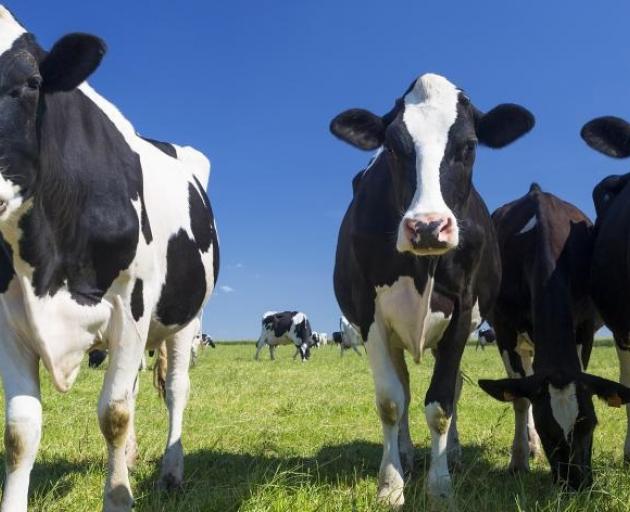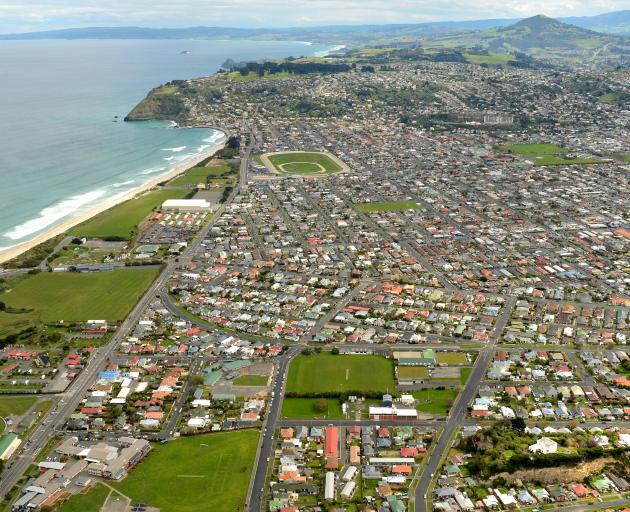
As a head of government, Jacinda Ardern is in rare company. Until recently, being a world leader calling for climate change action put her in an even more exclusive category.
Shortly after taking office in 2017, the Prime Minister found herself at year-end international summits "sitting around the table and being one of only two leaders who might mention climate change".

"In the past 24 months, to feel the shift in not just the coverage, but actually the focus...to [climate change] now being a dominant theme of the UN General Assembly in such a short space of time, it’s interesting to observe that shift but I’m glad it’s happening."
To her domestic and international fans, Ardern is still towards the front of the pack.
In her inaugural speech to the United Nations General Assembly last year, she warned that while action on climate change remained optional,"the impact of inaction does not". This year her declaration at the Pacific Islands Forum that"Australia has to answer to the Pacific" on the climate caused a stir on the other side of the Tasman.
It is unsurprising, then, that the eyes of the world will be on Ardern when she delivers the opening address at the UN Climate Action Summit - although she is quick to resist any suggestion she is a poster child for change.
"I don’t think New Zealand has ever put itself forward as being perfect on this issue - we are on a journey like everyone else is, but we recognise that it’s a journey we have to be on."
New Zealand faces some unique obstacles on the road to carbon zero, with half of the country’s emissions coming from agriculture - something that causes many world leaders to "gasp" when Ardern tells them.
The country is in some ways serving as a test case, she says, with other nations keeping a close eye on what technological innovations and other means of support for the primary sector can help the industry tackle the climate challenge.

New Zealand is one of the first countries - if not the first - to attempt to tackle methane emissions through legislation. The Zero Carbon Bill includes a split target requiring biogenic emissions to drop between 24 to 47 percent below 2017 levels by the end of 2050, and all other greenhouse gases to reach net zero in the same timeframe.
The methane target has created the largest controversy despite being treated more leniently, with farming groups calling for a more modest goal to avoid economic devastation for the industry.
Ardern is not surprised by the reaction, but is also clear the farming sector must contribute if New Zealand is to be successful in reaching carbon neutrality.
"When we’ve seen dramatic changes in our gross emissions profile since 1990, a significant portion alongside transport has come through changes in food production - that actually means it’s within our power to also reduce them equally.
"The fact we’ve had a one percent decrease per year, the fact that we’ve seen examples of reductions in [the types of] inputs that increase our emissions, and [reductions that] increase profitability alongside that, should give us hope - we just need to spread that good practice."
There are other challenges to be navigated, such as the lack of planning for the effects of sea level rise and coastal retreat on those who live along New Zealand’s winding shores.
Ardern acknowledges it is "one of the big unanswered and very challenging questions" facing the country, and says national politicians have been working with their local government counterparts on a joint approach for planning and liability.

However, she warns against focusing too heavily on adaptation, pointing to the attitude of the smaller Pacific island nations who are more exposed than most to the impacts of rising seas.
"I have not had any Pacific Island leaders raise with me the idea of climate refugees with me, and yet there’s a lot of assumptions that would be the case...there is such a focus on making sure we retain people’s culture and homes."
Advocacy for the Pacific has played a large role in Ardern’s climate change work. At the UN last year, she posed the question: "If my Pacific neighbours do not have the option of opting out of the effects of climate change, why should we be able to opt out of taking action to stop it?"
One relatively unheralded initiative which the Prime Minister may raise at the UN is New Zealand’s work, alongside Pacific nations and the International Law Commission, to protect the rights of coastal states with territory at threat of disappearing under rising seas.
Ministers and officials have raised the issue both formally and informally at the UN, and once some territorial disputes are settled, Ardern says New Zealand will press the case for entrenchment of existing boundaries.
Visiting low-lying states like Tuvalu and seeing their vulnerability first hand has given Ardern a sense of urgency and responsibility in making the case for action.
"It is not our job to speak on behalf of the Pacific, but we do need to speak alongside it, and try and really amplify that message that if we are talking about a future of more than 1.5 degrees of warming, it immediately means catastrophic weather events for our region and our neighbours."
While the science and the evidence base is important, it is that existential threat for the residents of the Pacific - not a vague prediction, but a present-day reality - that Ardern hopes can win over sceptics once and for all.
"I still remember watching some years ago my [now deceased] grandma sharing her view on climate change, very questioning of things, and hearing my father say, ‘Well I don't know much about that but I do know what I’ve seen in the Pacific and I’ve been shown where the sea used to be and I see where it is now', and that’s hard to deny."
This story originally appeared on Newsroom. It is republished here as part of Otago Daily Times' partnership with Covering Climate Now, a global collaboration of more than 250 news outlets to strengthen coverage of the climate story.
Comments
Any talk of sex offenders?
Oh that's right, the odt runs defense for the fairy princess
I’d suggest Ardern run for Prime Minister of a Pacific country, if her concerns are focused so heavily on their issues.
Instead of focusing on how badly everyone in NZ is, she needs to focus on how dysfunctional the government is.
A RMA that makes getting anything done slow and costly.
District Plans that force workplaces to locate exorbitant distances from housing.
Waste disposal systems that still rely on landfill and pumping to sea.
Politics, that focus on division while claiming to unite.
Her focus is based on the purity of her chosen elites and the condemnation of hardworking people trying to feed and house their families.
We need a government that cleans up its own act first and in so doing provide leadership NOT more virtue-signalling by those convinced of their own purity.
Dunedin, especially, needs to prosper so we can make change and adapt.
That is the only way forward.
